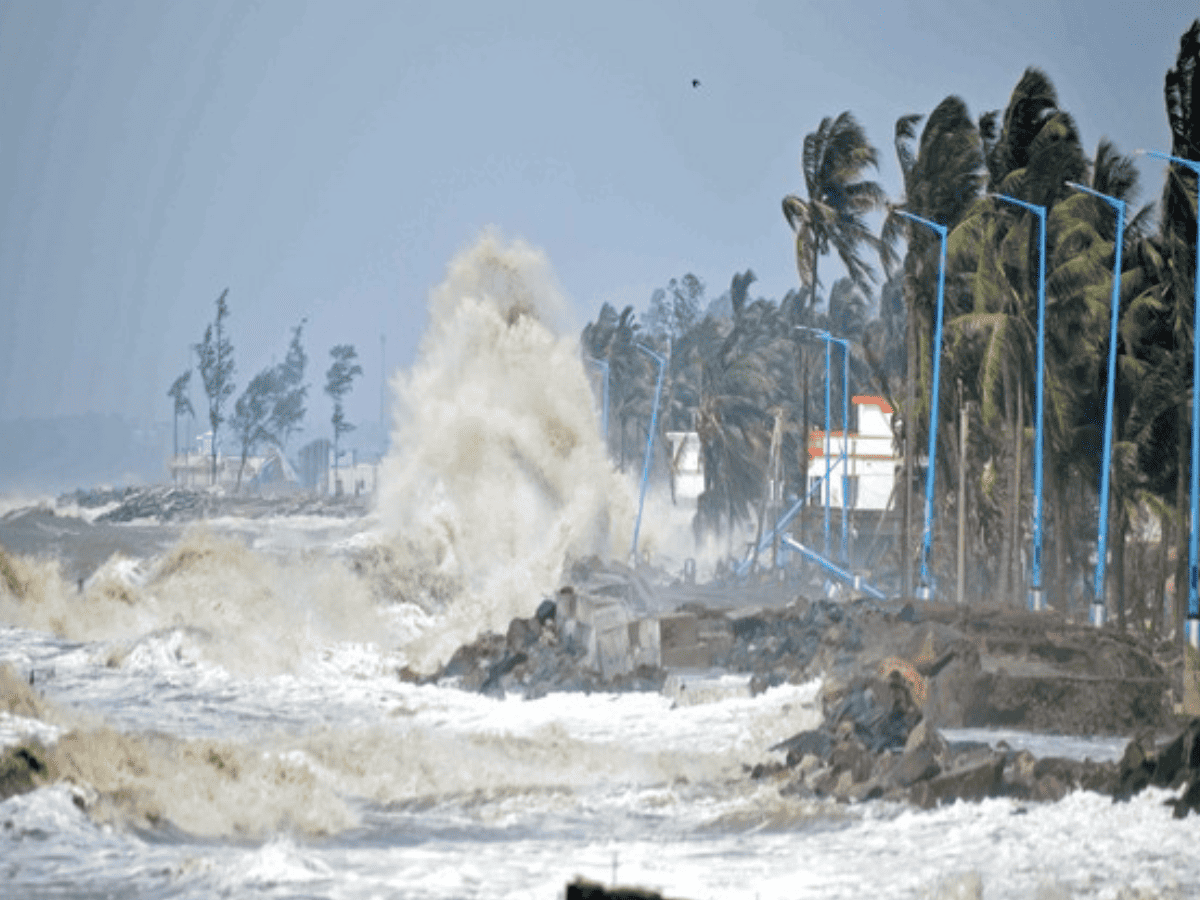Cyclone Mocha starts hitting Bangladesh, Myanmar coasts

Dhaka: Super cyclone Mocha started hitting the coastlines of Bangladesh and Myanmar on Sunday after intensifying into the equivalent of a category-five storm.
The powerful cyclone is bringing heavy rain and winds of up to 195 kph, which could see dangerous flooding in areas around the Bay of Bengal.
Storm surges of up to four metres could swamp villages in low-lying areas. There are fears it may hit the world’s largest refugee camp, Cox’s Bazar, where over one million displaced Muslim Rohingya refugees live in makeshift camps.
According to the latest bulletin by the Met Office, the cyclone is 250 kilometres south of Cox’s Bazar and is now crossing the coast.
The forecast was it will make landfall with heavy rains and winds on Sunday afternoon. The low-lying areas of Cox’s Bazar and Chattogram are likely to be inundated by wind-driven tidal surges eight to 12 feet above normal.
Tidal surges of five to seven feet above normal are also likely to deluge low-lying parts of Feni, Noakhali, Laxmpur, Chandpur, and Bhola, bdnews24.com reported.
Meteorologists previously warned Mocha could be the most powerful storm seen in Bangladesh in nearly two decades.
The category 4 cyclone has intensified into the equivalent of a category-five storm.
Around 500,000 people have been evacuated to safer areas.
As part of its preparation, Bangladesh shut nearby airports, ordered fisherfolks to suspend their work and set up 1,500 shelters as people from vulnerable areas were moved to safer spots.
Officials said the government, with the support of UN agencies and aid workers, has kept tonnes of dry food and dozens of ambulances ready with mobile medical teams in sprawling camps of the Rohingyas who fled to Bangladesh from Myanmar.
Residents and officials fear the Mocha-triggered tidal surges could cause massive deluges and landslides, endangering the lives of those residing in hillside camps, where mudslides hit regularly.
The World Meteorological Organisation, a United Nations agency, has warned the super cyclone will cause heavy rain, flooding, and landslides around the coasts of Bangladesh and Myanmar.
However, Mohammad Azizur Rahman, director of Bangladesh Meteorological Department, said the risk for Bangladesh has reduced.
He said areas in Myanmar and its southern region are expected to be at greater risk.
“The risk has reduced a lot in our Bangladesh,” he was quoted as saying by the Daily Star newspaper.



